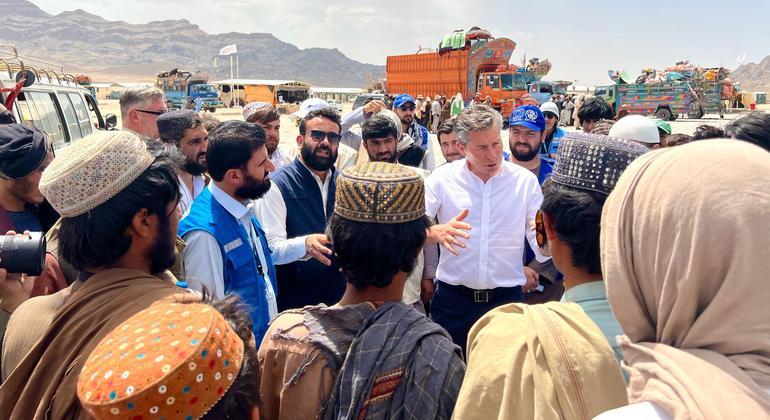Sure! Here’s the translation into American English:
—
The High Commissioner of the Office for the Coordination of Humanitarian Affairs (OCHA) has urged policymakers who have implemented cuts to humanitarian aid to visit Afghanistan to understand the impact of their decisions on the affected population. During a recent visit to the country, Tom Fletcher highlighted the closure of 400 clinics in recent weeks, exacerbating the already critical humanitarian situation. These cuts have divided the political response, with some lawmakers facing economic pressures that lead them to make difficult decisions, while others celebrate these reductions.
Fletcher expressed his desire for these politicians to meet with families suffering from the decisions made, emphasizing that isolation is not the solution. “If you want to make your country great, then you don’t withdraw from the world,” he stated. He also warned that future problems, such as pandemics and economic crises, cannot be prevented with isolation measures, and the decrease in aid could compromise up to a third of the sector, with devastating consequences.
The High Commissioner stressed that the money cut will not return soon and that further cuts may exist in the future, making it imperative to seek new partners and foster a change in the narrative around solidarity, including the private sector in the solution. OCHA is facing what it has described as a “humanitarian reset,” seeking to minimize harm while restructuring aid.
Despite the funding crisis, Fletcher noted that some donors remain steadfast and new donors have emerged from regions like the Gulf and China. OCHA is exploring innovative ways to attract private sector investments to ensure more diversified funding beyond governmental resources.
Dialogue with the U.S. administration continues to progress, and Fletcher is optimistic regarding the White House’s commitment to protecting vital humanitarian aid. Since his appointment, he has worked to reform the humanitarian sector to be more efficient and focused on the needs of those who require it. Ultimately, he reiterated that the fundamental purpose is to save lives, and that all actions should be defined according to that criterion.
—
If you need any adjustments, let me know!
via: MiMub in Spanish










